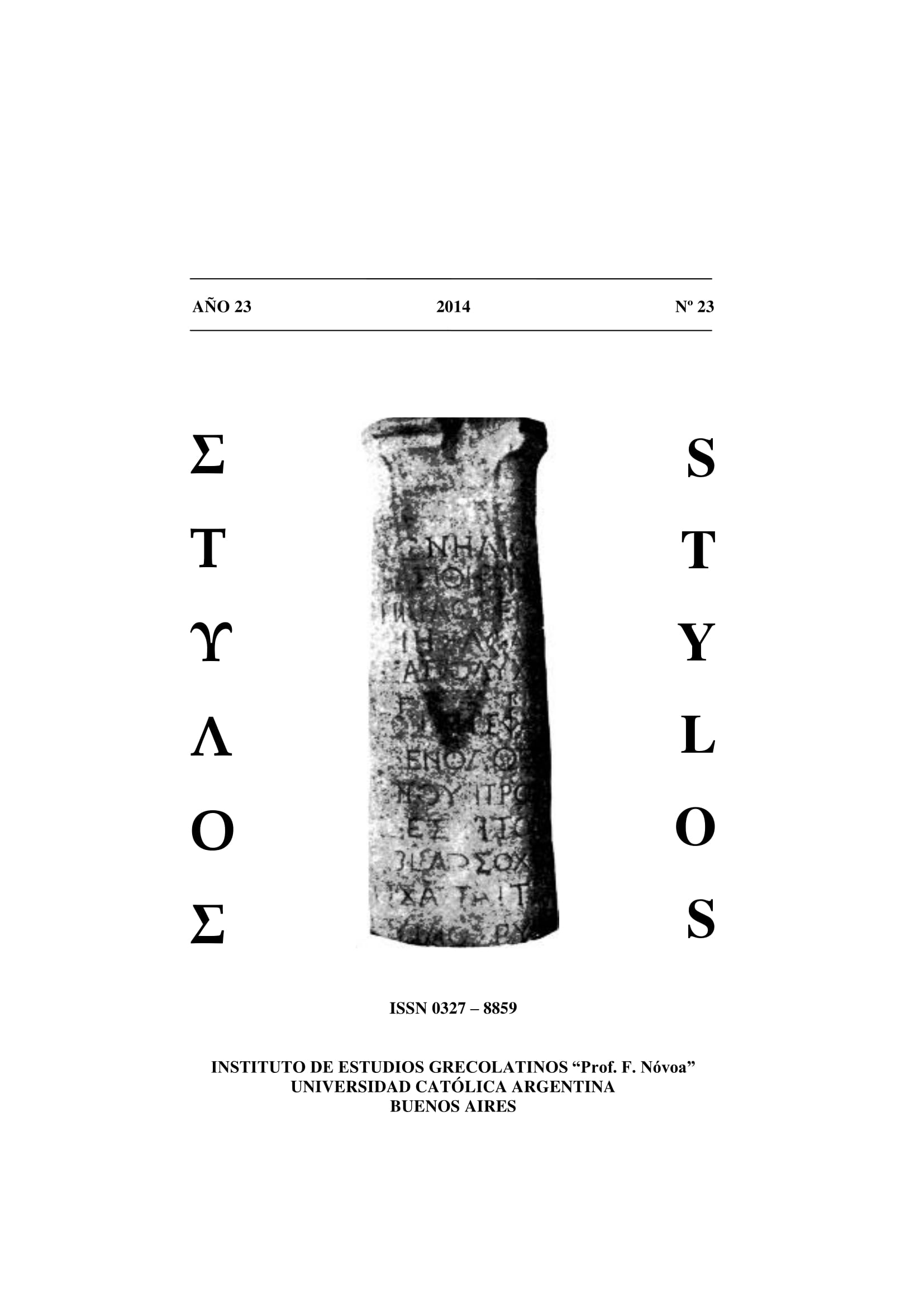EL ORIGEN DE LA CIVITAS EN EL DEFENSOR PACIS Y LA REINTERPRETACIÓN DE LA CAUSALIDAD FINAL ARISTOTÉLICA
Keywords:
Aristotle, Marsilius of Padua, Politics, final causeAbstract
Marsilius of Padua’s masterpiece, the Defensor Pacis, begins with a historical-genetic narrative of the perfect city or community starting from the most primitive social organizations. The author explains the possible historical development of the communities concluding in the explanation of the ultimate form of community, with the purpose of studying the place and function of the religious part of the city. It’s striking that a similar form of genetic narrative had already been used by Aristotle in Book A of his Politics, although this does not seem to be an accident considering Marsilius’ interest in Aristotle’s work.
The aim of the present work is to study the similarities and differences between the genetic narrative of the perfect community introduced by Marsilius and Aristotle with emphasis on the theoretical use both of them make of the final cause. In my opinion, while Aristotle refers to a final cause within a wider theoretical framework, the final cause named by Marsilius is limited only to a purposeful aspect. Bearing in mind the referred contrast, a further reading of both texts might explain the differences of results, as well as of developments, of both histories of the city.
Downloads
References
I. FUENTES
a) Texto original:
ARISTOTELIS, Physica, ed. W.D. Ross, Oxford, Clarendon Press, 1956
MARSILII DE PADUA, Defensor Pacis, 2 vol., Hannover, Hahnsche Buchhandlung, 1932
b) Traducciones:
ARISTÓTELES, Ética Nicomáquea, Trad. de J. Pallí Bonet (1985), Madrid, Gredos
____________ Física¸ Trad. de M. Boeri (1993), Buenos Aires, Biblos
_____________Metafísica, Trad. de T. Calvo Martínez (1994), Madrid, Gredos
_____________ Política¸ Trad. de M. I. Santa Cruz y M. I. Crespo (2005), Buenos Aires, Losada
MARSILIO DE PADUA, El defensor de la paz, Trad. de L. Martínez Gómez (1989), Madrid, Tecnos.
II. BIBLIOGRAFÍA SECUNDARIA
BERTELLONI, F., “Algunas reinterpretaciones de la causalidad final aristotélica en la teoría política medieval”, Cuestiones de antropología y ética en la filosofía patrística y medieval, 2003; 203-23
CAMERON, R., “The ontology of Aristotle’s final cause”, Apeiron, 2002; XXV, 153-79
CHARLES, D., “Teleological Causation in the Physics”, 101-28, En: Aristotle’s Physics: A collection of essays, Oxford, Clarendon Press, 1991
FURLEY, D. (1996), “What kind of cause is Aristotle’s Final Cause?”, en Rationality in Greek Thought, Oxford, Clarendon Press, 59-80
GOTTHELF, A. (1987), “Aristotle’s conception of final causality: with Postscript 1986”, en Philosophical Issues in Aristotle’s Biology, New York, Cambridge University Press, 204-42
GUTHRIE, W. K. C. (1981), A History of Greek Philosophy Vol. VI, Aristotle: an encounter, New York, Cambridge University Press
JOHANSEN, T.K., Plato’s Natural Philosophy. A Study of the Timaeus-Critias, Cambridge, Cambridge University Press, 2004
LOHR, C. (1982), “The Medieval Interpretation of Aristotle”, en The Cambridge History of Later Medieval Philosophy, Cambridge, pp.80-96
NATALI, C. (1999), “Problemas en la noción de causa final en Aristóteles”, Anuario Filosófico (32), 39-57
NEDERMAN, C. (1996), “The Meaning of ‘Aristotelianism’ in medieval moral and political thought”, en Journal Hist. of Ideas 57, pp. 563-585
QUERALTO MORENO, R. (1983), Naturaleza y finalidad en Aristóteles, Universidad de Sevilla
ULLMANN, W. (1983), Historia del pensamiento político medieval, Trad. Cast. Barcelona
WIELAND, G. (2000), “La recepción de la Política aristotélica y el desarrollo del concepto de Estado en el medioevo tardío en Tomás de Aquino y Marsilio de Padua”, en Patristica et Mediaevalia 21, pp. 22-36.
Downloads
Published
How to Cite
Issue
Section
License






